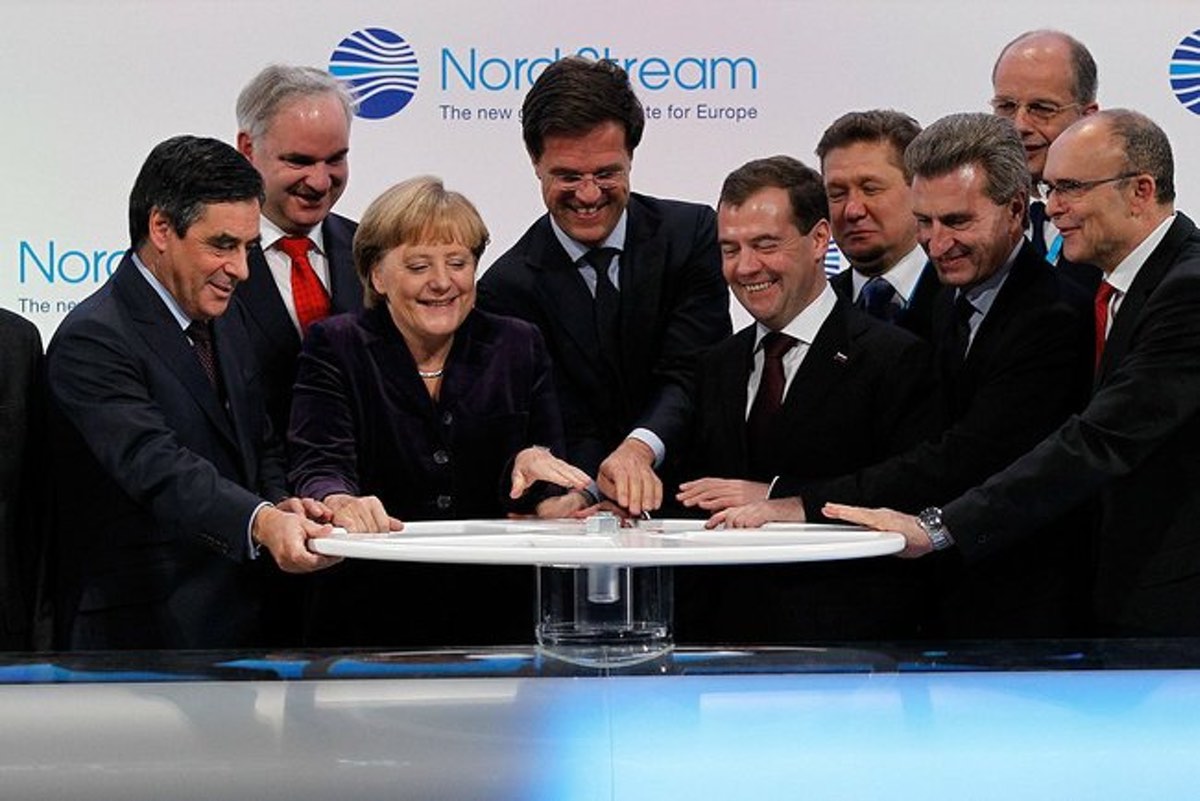The politics of energy has been making global headlines as the Nord Stream 2 pipeline comes to completion. This $12 billion pipeline underneath the Baltic Sea is expected to transfer 55 billion cubic meters of natural gas from Russia to Europe annually. This is double Russia’s current delivery to Germany. It is worth noting that the European Union (EU) already receives 40% of its natural gas from Russia through the Ukraine.
The construction of this pipeline has highlighted the divergence of interests amongst EU members and increased tensions between it and the United States. Germany occupies a peculiar position as it has managed to gather support for the introduction of sanctions against Russia after the annexation of Crimea in 2014 and the instigation of conflict with eastern Ukraine, however it has also advocated for a more cooperative approach with Russia following pressures from political stakeholders. These stakeholders regard this pipeline as a benefit to the country’s energy security as it sourced nearly 94% of its natural gas abroad in 2018. Germany argues that this would allow it to phase out its use of coal to meet its CO2 emissions reduction targets. Croatia, Lithuania, Estonia, Romania, Poland, the Slovak Republic, Hungary, and the Czech Republic signed a petition against the construction of the pipeline while being highly dependent on Russian gas. Italy opposed the construction as bypassing Ukraine would extend Berlin’s leverage over the Western European energy market. The pipeline has also caused doubts on trans-Atlantic security ties between Europe and the US, as Berlin’s dependence on Moscow for energy supplies could eventually result in it being controlled by Russia. Nord Stream 2 has also managed to cause a rift between NATO allies. Sweden, Poland, and the Baltic countries have all raised their concerns regarding the pipeline.
Critics warn that this pipeline is not aligned with European climate goals as it can harm fragile marine eco-systems and risk the bloc’s move to low-carbon economy. Others warn that the pipeline may create an over-dependence on Russia, increasing its control over the region’s energy supply and strengthening its overall influence. History supports this concern as Russia shut down its neighbour’s, the Ukraine’s, gas supply in 2006 and 2009 after it began implementing pro-Western policies. Policy disputes over the pipeline stem from different perspectives on energy security.
Those in favour of the pipeline view Russia as an economic partner and reliable oil and gas supplier, while critics are concerned it will create security vulnerabilities. They warn that Russia may use it to deploy its naval forces along the pipeline routes under the guise of protecting its national security leaving the Baltic Sea unnavigable. It will also allow the Kremlin to deploy surveillance devices along the pipeline route. This may prove to be problematic as NATO uses the Baltic Sea for exercise purposes.
The Ukraine fiercely opposes the pipeline as it bypasses its territory and deprives Kyiv of gas transit fees. It is estimated that this would result in the country losing $2 billion in transit costs annually. Some analysts suggest that this could force the country to find alternative partnerships. This might result in it the Ukraine either working with China, Turkey or Gulf countries.
That the US signed an agreement with Germany regarding Nord Stream 2 is a fait accompli. Little would be worse for the country than fighting something it cannot change. Their agreement also serves to preserve their relations with the Ukraine and Poland. This agreement seeks to preserve the Ukraine as a gas transit country and to act against Russia it if it attempts to exert political pressure on its neighbour using energy supplies, or use energy as a weapon. Critics stated that the outline of the agreement is vague as there is no certainty on what constitutes an energy weapon and how sanctions can be triggered.
There is however a bigger play- one for Eurasia. Russia, the US, the EU, China, Turkey, and Iran are all interested in the shifting regional security of this landmass. Having recently re-emerged as the central actor in the region with an agenda of integration and establishing Eurasia as a distinct political and security space, Russia is acting strategically. With the completion of Nord Stream 2, Russia will have definite control over energy security in Europe while driving a wedge between NATO allies, consequently weakening US influence. While Russia enjoys good relations with China, its control over Europe will assist it in not becoming overly dependent on the Chinese economy. Thus, meaning that it won’t have to make concessions, particularly with energy projects.
Russia’s next move regarding its strategic partner and rival Turkey is yet unknown, while Russia continues its strong and strategic partnership with Iran. So, will Russia’s game of “frenemies” work? This remains to be seen.

